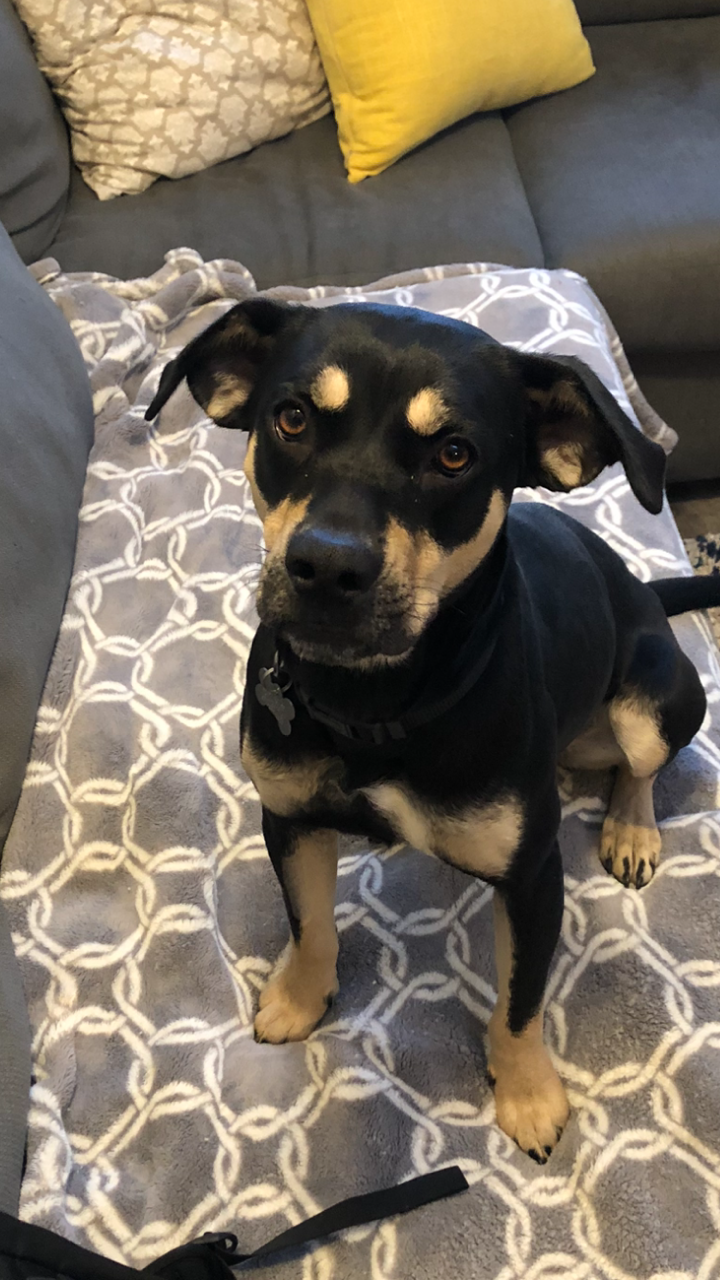Dogs!
I'm one of those people that can talk about their dog too much. This will become evident as you keep reading. To non-dog people, thanks for nodding your heads and feigning interest; I am appreciative.
For about two-thirds of my life, I've had a dog. It started as a kid with Frosty, a mutt who would chase anything that was thrown but NEVER return it: balls, sticks, rocks, and also invisible balls, invisible sticks and invisible rocks, as long as the throwing motion looked right. I vaguely remember feeling confused as a young kid why Frosty and I had such different understandings of "fetch." Around 3rd grade, Frosty died, and my mom came to school and pulled my brother and I out of class. The principal, reacting to my mom's emotional distress, assumed it was maybe a grandparent or other relative, and I remember her feeling maybe a bit foolish -- but shouldn't have -- upon explaining that it was a dog as the mascara and tears ran down her face. In third grade, there's a lot of simple stuff yet to learn about the world and people's lives, and I wondered why my mom did that to her face before coming to school to tell us our dog died.
Not long after Frosty died, we got Duran, as in the 1980s pop group Duran Duran. Duran came from a litter of puppies two houses down the street, and if the folklore has any truth to it, joined our household because one or both parents had one too many drinks. Duran was full of endless love and loyalty, would follow us on the walk to school and even sometimes make his way into the school before returning home on his own. To this day I can picture the janitor chasing Duran down the school's single long main hallway and not having a chance, and then one of our friends opening a door to let Duran escape with victory. I like to think I openly cheered at Duran's victory, but realistically I probably pretended like I didn't know whose dog it was. Duran was alongside the family through my junior high and high school years, bounced between my mom/stepdad and dad's houses after I left for college, and finished up his life with my older brother in Alabama where he lived a newly luxurious and spoiled existence courtesy of my sister-in-law.
In was several years before I adopted a dog of my own, Cooper. Two friends talked me into going to a local shelter "just to look at the dogs" they said, which turned out to be effective manipulation on their part. In hindsight, no one goes to a shelter and only window shops. That's practically perverse. We went, met some dogs, including a dog who, upon taking him from his kennel and into the enclosed meet-and-greet play area, rolled on his back and peed like a water fountain in an expression of unmanaged joy. We returned home, I dropped off my friends at their respective houses, and then I turned back around to adopt Cooper, the joyful urinator. The joy, happiness and playfulness he exuded while living in a shelter of relentless stressful barking made an impression that I couldn't shake.
For most of his life, especially his early life, Cooper could always get himself on the other side of fences in response to his insatiable need to explore. If you've ever owned the proverbial "escape artist" dog, you know how this goes: you think you've addressed every possible way a dog could get out of the yard, but clever dogs will always find clever ways. I was regularly outsmarted by Cooper, to a point where I would pretend to leave, lurk behind a tree and try to figure out his strategy, only to meet his eyes through the fence slats, eyes that expressed his disappointment in me. I tried the invisible fence shock collar, but Cooper's cost-benefit analysis skills led him to regularly endure a moment of mild shock if it led to the freedom to roam.
Cooper was ridiculously loyal to me and often distressed when we separated. He once watched from a second floor window at my dad's house as I left the dock with other family members on a pontoon boat -- Cooper was irrationally nervous on boats, so we left him behind -- and he jumped through the window screen, sprinted to the dock, and leapt onto the boat. Unlike me, Cooper never EVER needed alone time.
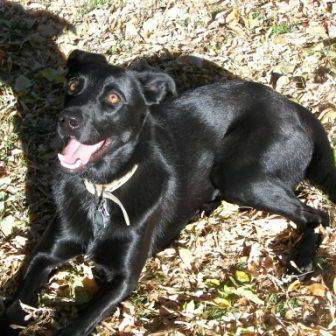
Cooper's biography also includes:
- jumped from a second floor condo balcony and earned my first warning from the HOA
- ran more than 18,000 miles with me over his lifetime
- experienced three run-ins with porcupines
- received a citation for "nuisance behavior" by the City of Fort Collins for which we had to go to court
- ate a regular sized cheesecake in full while standing on the kitchen counter
- rather than react with a protective instinct, laid next to a college student who drank too much, wandered into my house, and passed out on the couch
- escaped, walked a mile, and entered a popular breakfast cafe where he was fed pancakes
Cooper loved nature. His mental endurance to keep going and keep exploring boggles my mind to this day. If he saw an alpine lake off in the distance while we were on a big hike, he would race toward it, go for a swim and return to me. We explored canyons, skied in the backcountry, river rafted, camped, and ran in landscapes throughout the intermountain West. I could not have asked for a more adventurous and outdoor-loving companion.
And like most dogs, Cooper had emotional needs. Since it was just the two of us, I was on the front line of meeting those needs, and that doesn't play to my natural strengths. But that's also why he was such a great addition to the household for his 13 years, to force me to act outside of my usual self. And he did his part to meet mine, when I'm willing to admit I have emotional needs. Following an incident in Kenya that reduced me to an unsettled mess for several weeks, especially in the days immediately after returning home, Cooper stuck right by my side more than usual, following me in ways he typically didn't, from the living room to the kitchen or the bedroom to the bathroom. While in the yard for those weeks, he temporarily let squirrels live a more peaceful life while he stayed next to me as I did yardwork or fiddled around with some project. He was arguably more emotionally intelligent than me.
My experience with dogs and what I feel I gained from them in my life -- especially Cooper, the only dog that was "my" dog from start to finish -- are consistent with conclusions drawn by researchers. I read several articles about human-pet relations, and this 2020 article by Kanat-Maymon and others synthesizes much of the research really well.
A lot of research focused on how pets -- and specifically dogs -- provide families and owners with benefits that include reduced stress, psychological comfort during difficult times, and physical benefits via the need to exercise dogs with walks and hikes. Despite his escape artistry, having Cooper around was, overall, a net stress reducer, as research would suggest.
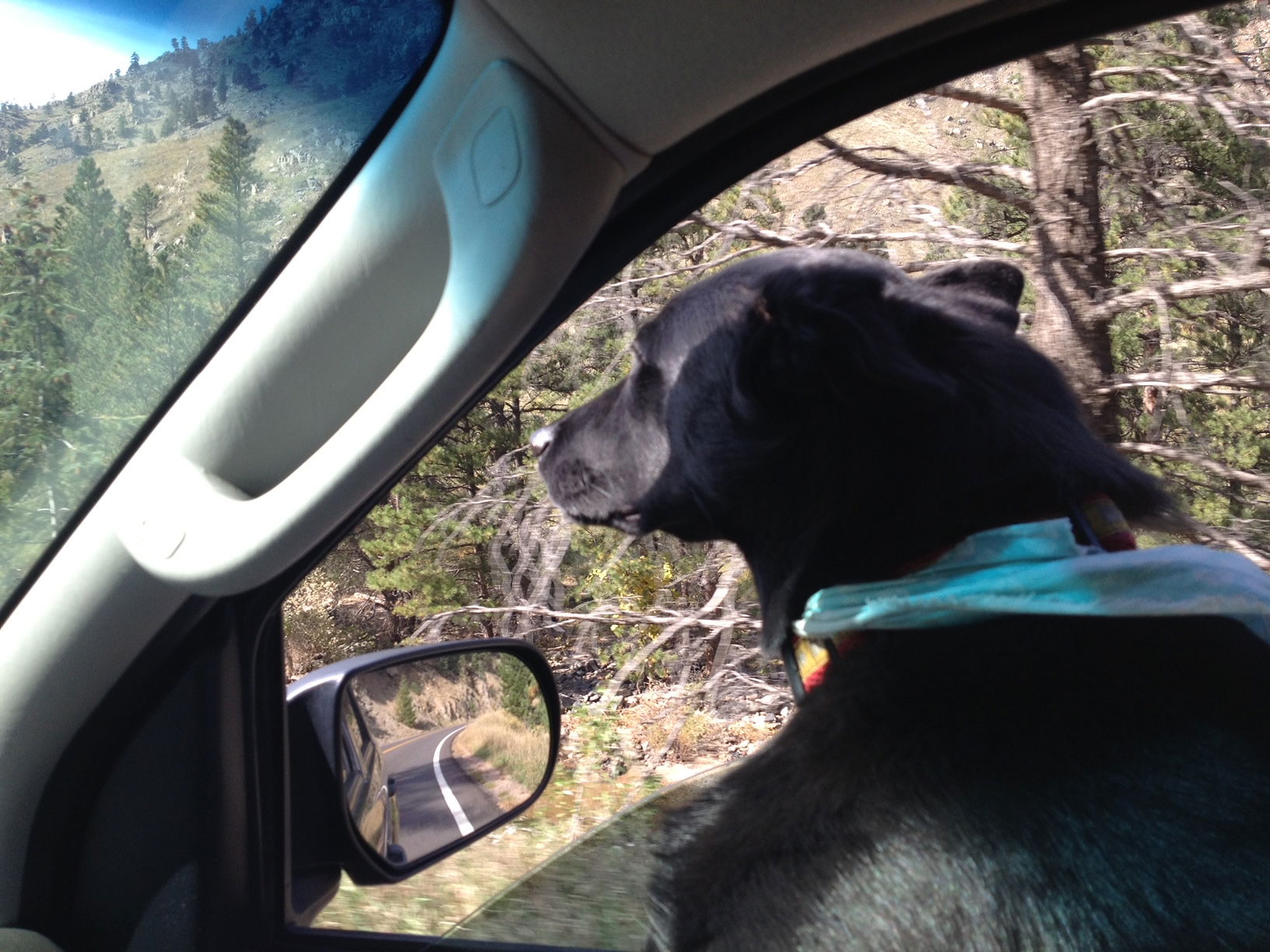
The research about the psychological benefits from dogs has some discrepancies however. In some studies, there were no significant differences between dog owners and non-owners on various measures of stress and well-being, while some research concluded otherwise. And since dog-human studies don't lend themselves to the research gold standard of randomized controlled trials -- it's not practical to randomly select people and give them a dog for a 10-15 years and then compare them to a control group -- there are questions about whether dogs improve people's lives, or if people with less stressful lives are simply more likely to adopt dogs.
While research about the benefits of dogs leans toward "likely but not conclusive," there's additional research that our role to support the needs of our dogs -- through food, exercise, and their emotional needs -- provides benefits; we gain something positive by being their caretakers. As mentioned before, Cooper forced me to meet his emotional needs; he would literally lift my hand with his head and force me to pet him, as some dogs do. He needed that attention and human touch. These caretaker benefits, when combined with the likely-but-statistically-inconclusive receiver benefits of well-being and stress reduction, make it highly likely that dog ownership is a net positive.
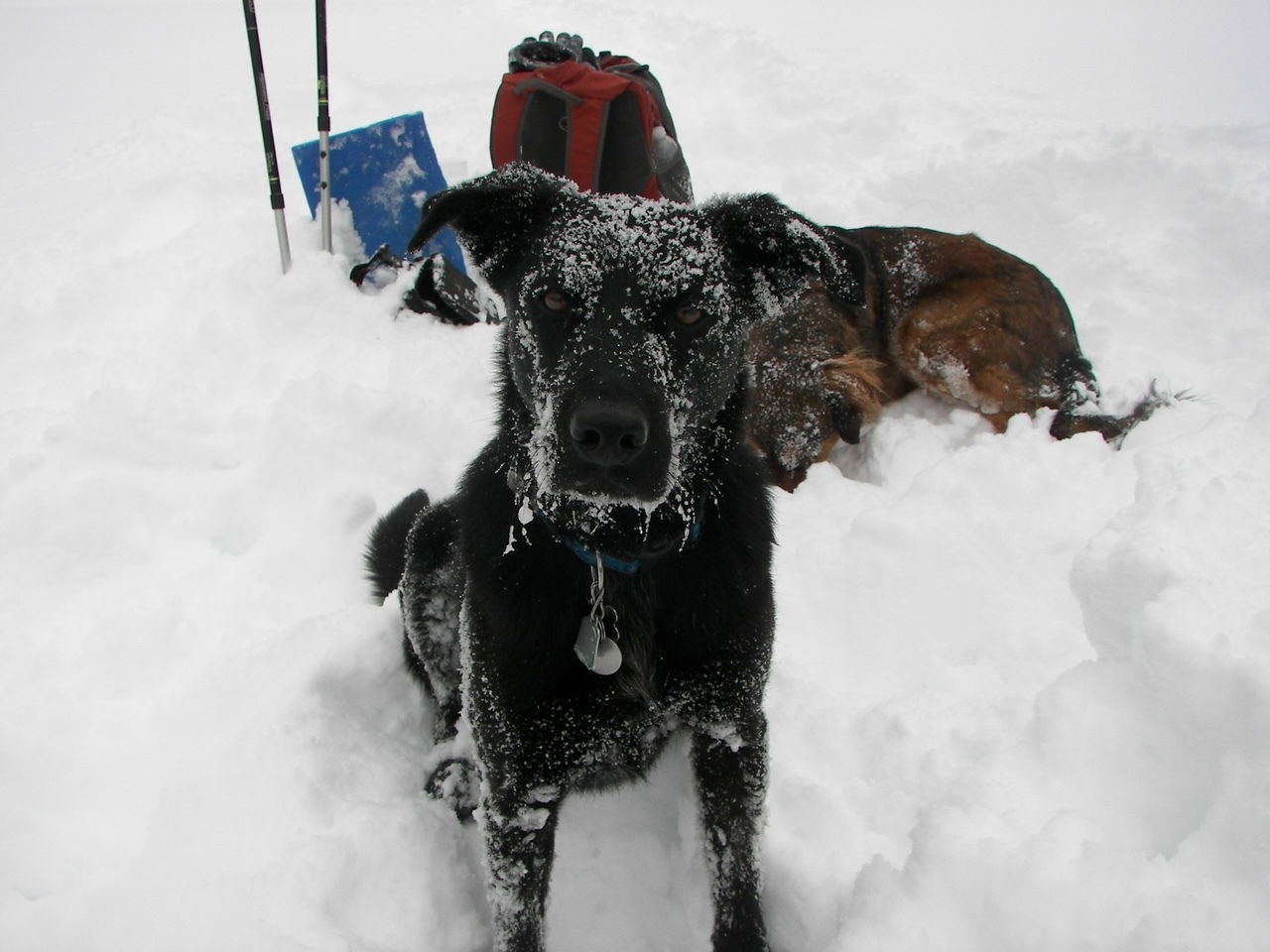
During the first several months of Covid lockdown, I was home, as we all were, and mostly alone. Cooper had died about three months prior. We all remember those lockdown months. I was not only feeling the dog void, but a social void more generally. I turned to fostering dogs, which was humorous and adventurous in ways I did not anticipate. Most of these dogs come from rough scenarios, and I truly adored the process of giving them space to co-exist with me under the same roof, and slowly earn their trust through dependable feeding, treats, pats on the head, and eventually for some of them, fun and games. It's the benefits of feeling like a caretaker, as mentioned above.
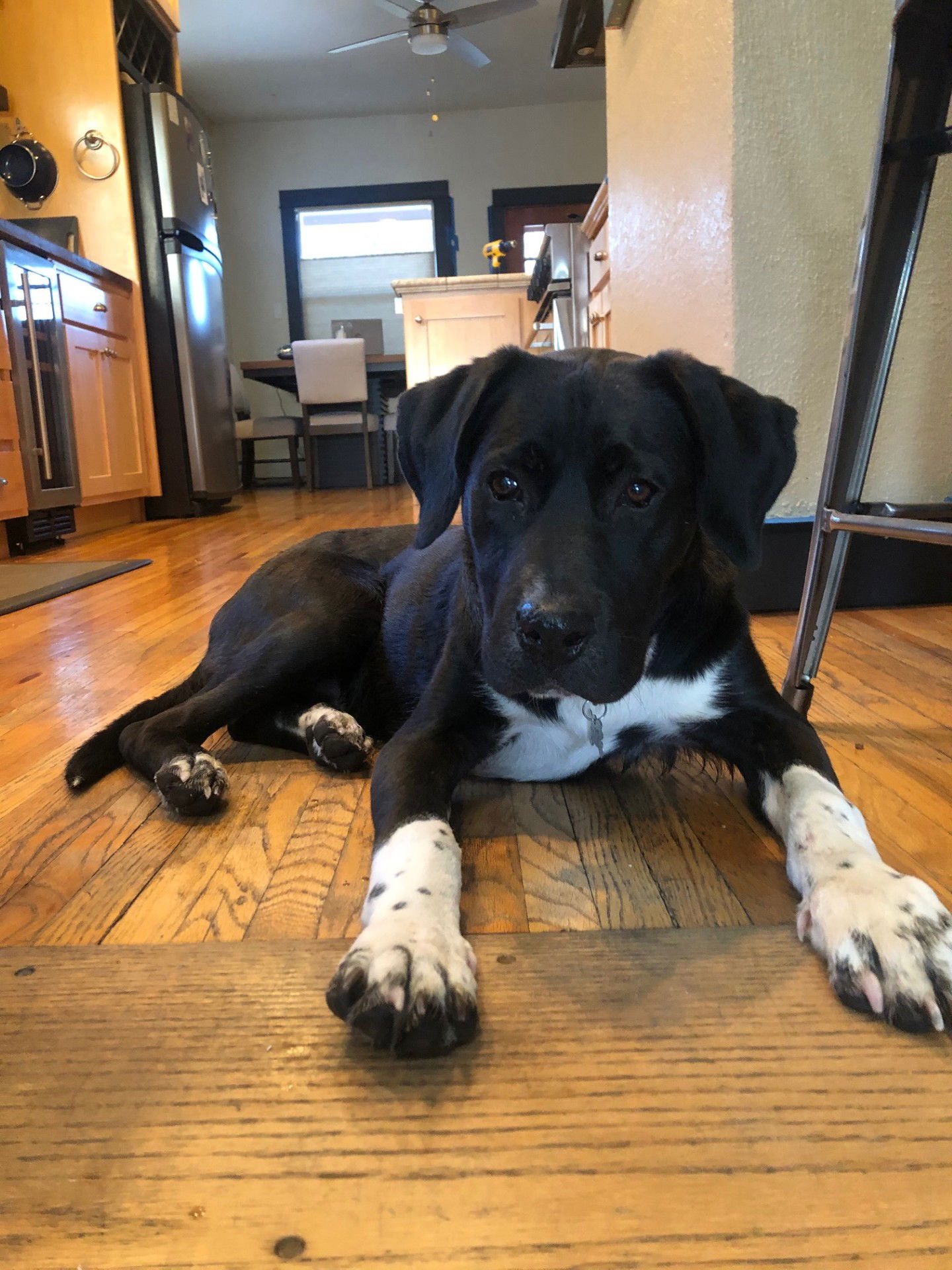
Lucky was a super sweet dog from the get-go, but initially he acted unpredictably with bursts of energy and then long periods of lethargy, and he didn't eat much. We eventually learned that Lucky didn't eat much because he literally had a deflated ball in his stomach, like he put an end to a game of fetch once and for all at some point in his recent past. I remember the vet office calling after Lucky's surgery to let me know they found the problem -- an earlier x-ray revealed an unrecognizable mass in his stomach, so they conducted surgery to find out what was going on -- and later showed me the ball when I picked him up, offering it back to us if we wanted it, but Lucky and I cut our losses and opted for balls that hadn't once existed within his digestive system.
I don't know if the rules about not having a favorite child also apply to foster dogs, but if so, I will violate it and say Lucky was hands-down my favorite. After the ball removal, he was lively, fun, and up for anything. He was sweet and friendly to everyone and all other dogs, and unlike many of my other dogs, he showed curiosity but not complete mental chaos toward squirrels in the yard. I should have adopted him. Regrets.
Starkey was the saddest foster dog of any I've had. He, too, was sweet, but clearly so damaged and hurt that he rarely gave off vibes that were anything but sad. He was found with several BB's in various parts of his body. It was heart breaking to see a dog unable to show zest or joy, though over time he showed just enough tail wagging and temporary spring in his step that it seemed like he would eventually be okay in a loving and patient household. Starkey's moment of infamy came while we visited my friends Jon and Caitlin who live a few blocks away. I often, at Jon's suggestion, to be clear, used their children to measure the kid-friendliness of foster dogs, which helps potential adopters find the right pet. During a visit to their house around the holidays, Starkey walked around in his typical sad way, moped over to their Christmas tree, lifted his leg, and took an unimaginably long pee. It took so long that we collected cleaning materials and were at-the-ready before Starkey finished, long enough that Jon and I were able to patiently wonder together how long it would go on, while his kids watched with amazement. Starkey was adopted by a lovely woman who later texted that he was exactly what she needed in a pet -- chill, low maintenance, and the potential to shine.
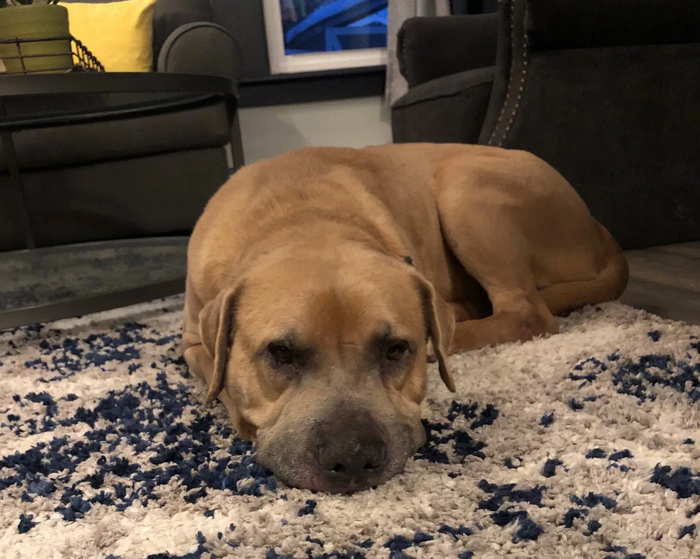
Finally, the trouble-making devil pictured below is Edgar. Earlier I mentioned that some research about the benefits of dogs is inconclusive, and Edgar might be the sole reason for uncertain outcomes about the benefits of dogs. Living with Edgar -- I can feel my heart rate increase just recalling the memories -- was like hosting a wild feral animal in my house. We were less than two minutes into leaving the dog rescue office before Edgar clawed erratically at the windshield trying to escape and eventually settled for spinning into a wild blur in the back of the car for a majority of the ride home. I could feel the uninformed judgement from people in cars next to me at stoplights.
Edgar was young, curious and most of all, destructive. It was stressful to leave him to roam the house while doing something as brief as taking a shower; he was incredibly efficient with his destruction. When the dog rescue organization reached out for a few words to add to Edgar's description on their website, I initially came up with "criminally-minded," "deviant," and "costly." His destruction targets varied from the standard and uncreative-- throw pillows, shoes, a remote control -- to completely senseless: coffee mugs, a bike tire still attached to a bike, outdoor spigots.
In a more suitable setting -- a massive field of nothingness, for example -- Edgar would be at his best, where his energy could be expended in a damage-free extravaganza of directionless sprinting.
To Edgar's credit, he was a good-natured criminal, always friendly and relentlessly happy, just impossible to contain and incapable of feeling shame or guilt. He was eventually adopted by a nice family who had a few toddlers, which felt like a good fit since the parents were presumably skilled in managing destructive behavior, and it spared me the trajectory Edgar and I seemed to be on in which he would eventually burn down my house. I assume he has cost that family thousands of dollars by now, but I bet their kids love having a third conspirator.
